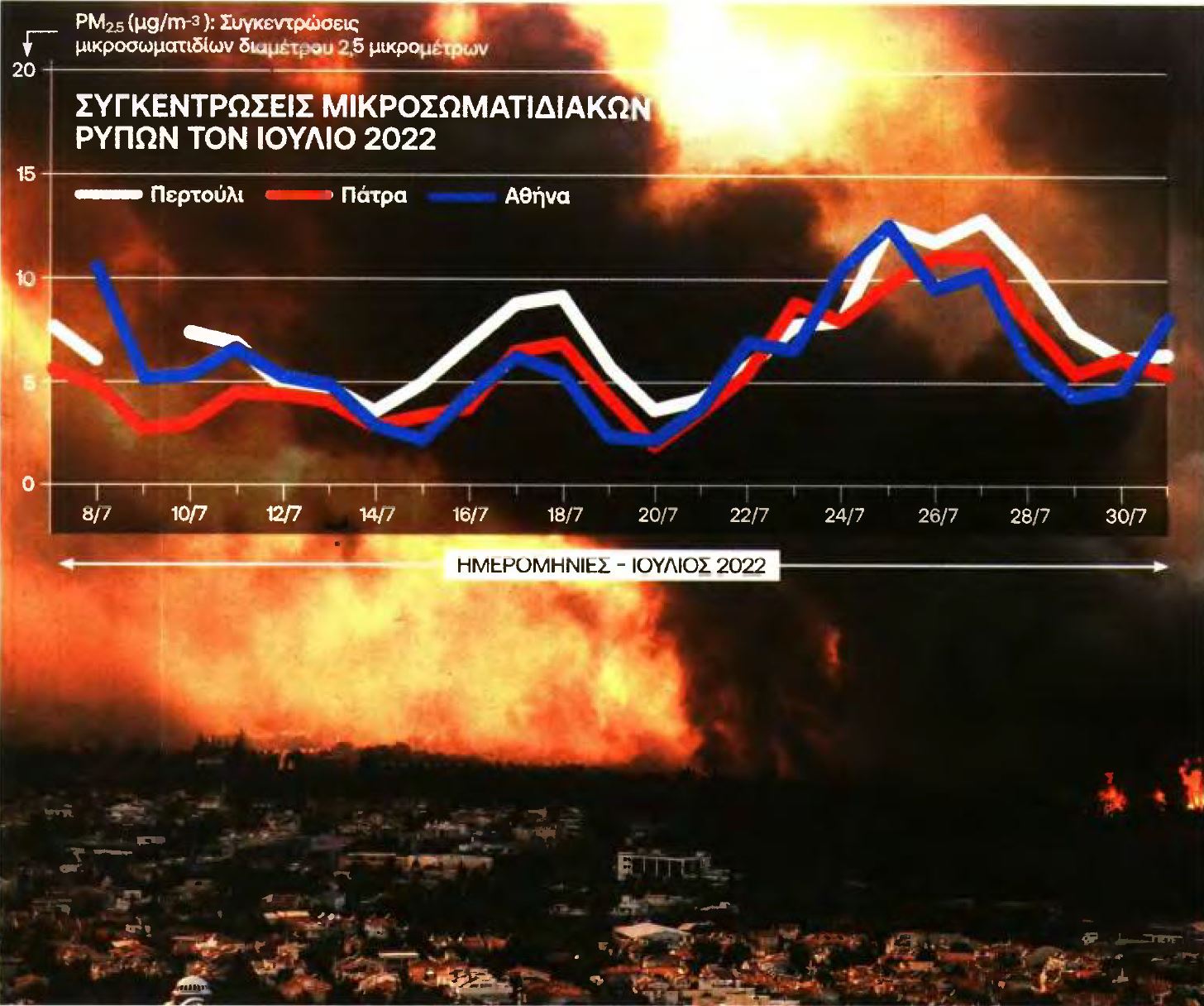News
The role of forest fires in Europe’s air quality and human health

Every year millions of forest fires occur around the world, especially during the summer months. The particulates and air pollutants emitted by these fires can affect both air quality and climate. However, scientific studies in Europe so far have shown a relatively small (less than 10%) contribution of these fires to average levels of particulate pollution, limited to a few tens of kilometres from the fire.
In a new study published in the international journal Nature PJ: Climate and Atmospheric Sciences, research teams from the Institute of Chemical Engineering Sciences of FORTH and the Department of Chemical Engineering of the University of Patras have shown that the contribution of forest fires to Europe’s summer air pollution is dramatically underestimated (4-7 times), as they extend hundreds or even thousands of kilometres away from their respective fire sources. Dr. Christina Vasilakopoulou and her colleagues have shown by combining measurements in central Greece and computational chemical transport models that particles emitted by fires react rapidly in the atmosphere, mutate and lose their chemical organic fingerprints. These chemical reactions take place even within a few hours of exposure to the summer sun and lead to an increase in both their mass and toxicity. At the same time, they become difficult to detect with existing scientific techniques.
This pioneering research has shown that the air we breathe on relatively clear summer days, without any fires in Greece, contains significant concentrations of nanoparticles that started from fires that existed in previous days even thousands of kilometres away and changed dramatically (for the worse) on their journey to our country. As an example, a large fire in Portugal was studied whose emissions travelled through the United Kingdom, Norway, France, Germany and many other European countries and finally reached Greece almost two weeks after the fire started. The concentration levels of these particles are relatively low, but our exposure to them is continuous throughout the summer. It has been estimated that this exposure leads to 10-16 thousand deaths in Europe each summer.
Dr Christina Vasilakopoulou said that “in recent years we have seen an increase in the intensity and frequency of forest fires, with negative consequences for the quality of the air we breathe. Unfortunately, these fires, as we have shown in this study, due to the atmospheric reactions of the pollutants emitted, increase the toxicity of the air that all Europeans breathe even thousands of kilometres away from the fire.” Professor Spyros Pandis added that “our work shows that the significant health effects of fires on Europeans have been grossly underestimated. This makes the need to reduce them even more urgent.”
The research team consists of: Christina Vasilakopoulou, Angeliki Matrali, Ksakusti Skyllakou, Maria Georgopoulou, Andreas Aktypis, Kalliopi Florou, Christos Kaltsonoudis, Evangelia Siouti, David Patoulias and Ioannis Kioutsioukis (FORTH/ICE-HT and University of Patras), Evangelia Kostenidou (Democritus University), Agata Błaziak (Academy of Sciences of Poland), Athanasios Nenes (EPFL Switzerland and FORTH/ICE-HT), Stephanos Papagiannis and Kostas Eleftheriadis (Demokritos) and coordinated by Prof. Spyros Pandis (University of Patras and FORTH/ICE-HT).
The study was funded by the Hellenic Foundation for Research and Innovation (H.F.R.I) and is available at:
https://www.nature.com/articles/s41612-023-00544-7


Related publications:


